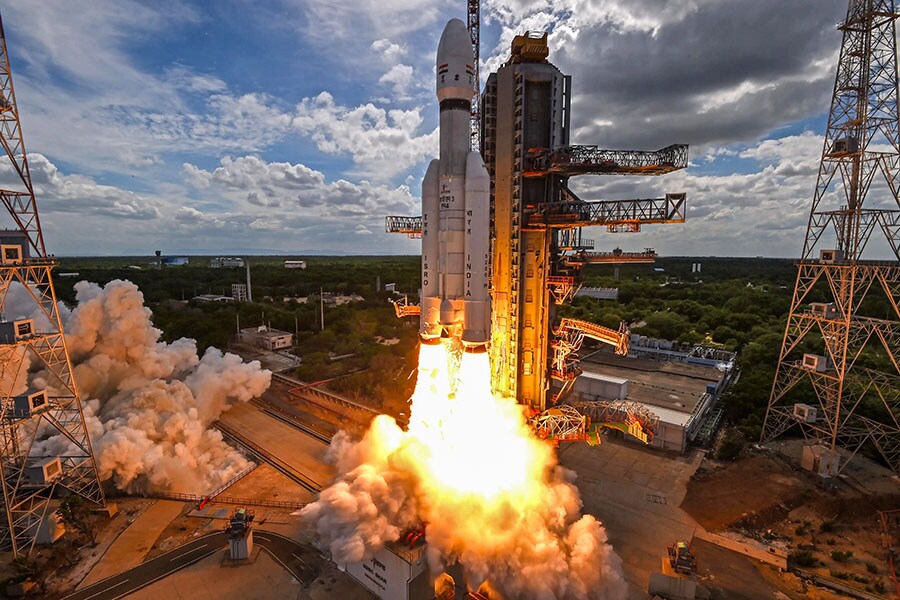
How India's space economy could hit $100 billion by 2040
A new report estimates Indian spacefaring can grow faster to hit that milestone, while an expert calls for focus on the country's own priorities
 Over the last two decades, India has launched 381 satellites for 34 countries, making it a preferred destination for satellite launches worldwide Image: Courtesy ISRO
Over the last two decades, India has launched 381 satellites for 34 countries, making it a preferred destination for satellite launches worldwide Image: Courtesy ISRO
The global space industry is undergoing an important shift, from the traditional government-led programmes to a mix of actors, led more by private companies, a new report on the sector by Arthur D Little (ADL), a multinational management consultancy, notes.
The nascent spacetech startup landscape in India, helped by the country’s liberalised space economy rules and supported by Isro, is an example of this shift. And, with the right initiatives, India could tap this shift to go from a $8 billion space economy to $100 billion by 2040, according to ADL’s report, titled ‘India in Space: A $100 billion Industry by 2040’, released today.
“The Indian government and space startup ecosystem are keen to participate in the sector’s accelerated growth and make India a major contributor to humankind’s space exploration,” Barnik Chitran Maitra, managing partner, Arthur D Little India and South Asia, writes in the report.“Isro’s ambitions and capabilities, increasing government expenditure on space, rapidly increasing investment and activity in the country’s private space sector, and government policy to increase commercial space ventures make India a very lucrative market with ample opportunities.”
The consultancy calls the next stage of evolution of the space industry Space 4.0, with the previous three phases going from early astronomy to the race to the Moon to more international cooperation among nations, some of which overlaps with the new phase.
Over the last two decades, India has launched 381 satellites for 34 countries, making it a preferred destination for satellite launches worldwide, ADL notes. For example, Isro’s rockets have recently put satellites in low earth orbits for private companies such as OneWeb that is building a satellite constellation-based internet service.








